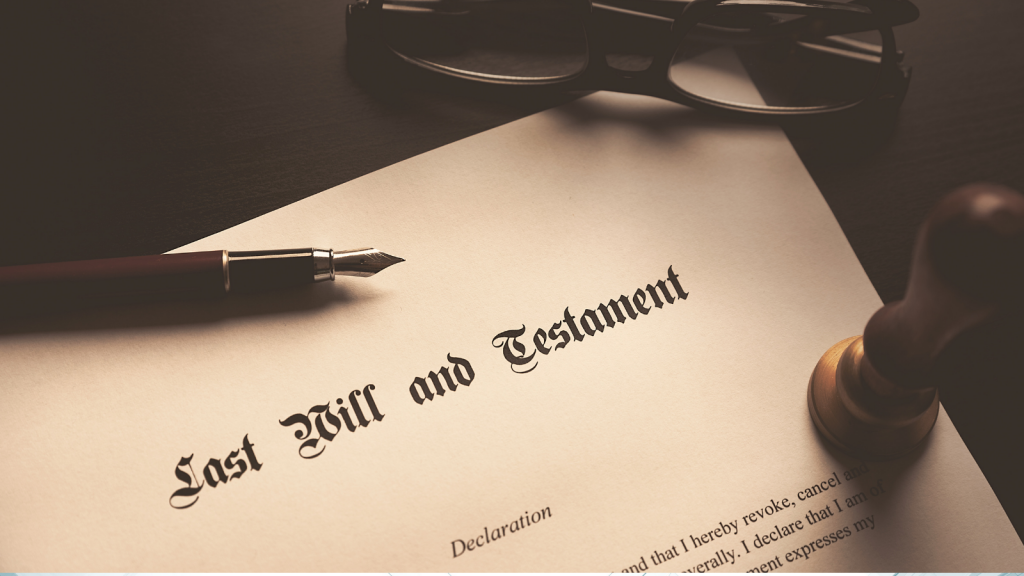4 Common Florida Probate Issues | ShuffieldLowman

What is Probate?
Probate is the court-supervised process for collecting the assets of an individual who has passed away (the “Decedent”), notifying creditors, paying the Decedent’s debts pursuant to law, and distributing the Decedent’s assets to their beneficiaries. There are two different types of Florida probate administrations: formal administration and summary administration. There are also four different types of non-court-supervised procedures that may allow you to avoid opening a formal or summary probate administration: disposition without administration, income tax refunds, payment to successor without court proceedings, and disposition without administration of intestate property in small estates. Each of these methods have different advantages and only apply in limited circumstances.
Issue Number 1 – Locating the Decedent’s Will.
A will is a document in which the Decedent names who they want to receive their probate assets. The Decedent’s will may also name who they would like to nominate as personal representative. In Florida, a personal representative is the individual who is appointed by the Court to administer the probate estate (also known as an executrix or administrator in other jurisdictions).
Once the Decedent’s original will is located, it needs to be filed with the Court in the county in which the Decedent was domiciled. Under Florida law, the individual in possession of the Decedent’s will must deposit or file the will within 10 days of learning of the Decedent’s death.
What happens if you cannot find the Decedent’s original will? There is a process in the Florida probate administration that allows a party to establish and probate the Decedent’s lost or destroyed will.
What happens if the Decedent did not have a will? Someone who dies without a valid will dies “intestate.” If the Decedent dies intestate, Florida Statutes list who is a beneficiary of the Decedent’s estate and how the Decedent’s Florida probate assets will be distributed.
Issue Number 2 – Determining Whether a Florida Probate Estate Should Be Opened.
The main considerations in determining whether a probate estate should be opened include:
A. Are There Probate Assets?
Not all of the Decedent’s assets are included in the probate estate, and many people develop estate plans to avoid the probate process. The most common probate assets include:
Bank account in the Decedent’s name alone with no payable on death beneficiaries;
Life insurance policy, annuity, or individual retirement account payable to the Decedent’s estate or having no beneficiaries;
Vehicle titled in the Decedent’s name alone;
Real property titled in the Decedent’s name alone or as tenants in common; and
Tangible personal property of the Decedent;
Decedent’s homestead.
B. Does the Decedent's Debt Outweigh the Probate Assets?
If the Decedent’s debt outweighs their probate assets, you may want to wait 2 years from the date of death to open the probate estate. Florida’s probate process provides creditors with the means to file a claim against the Decedent’s estate and, if their claim is valid, the creditor will need to be paid before the probate assets are distributed to the Decedent’s beneficiaries. However, all creditors must file their claims against the Decedent’s estate within two years of the Decedent’s death. If a creditor fails to file their claim within this timeframe, the Decedent’s estate will not be required to pay them. In addition, certain assets may be exempt from the claims of creditors.
Issue Number 3 – Locating Probate Assets.
Once a personal representative is appointed for the Decedent’s estate, the personal representative must locate all of the Decedent’s probate assets and list them in what is referred to as the Inventory. The Inventory is a document informing the Court and the beneficiaries of all the Decedent’s probate assets and their approximate value. There are many circumstances where probate assets may be difficult to find. A skillful attorney can take advantage of legal tools to efficiently locate bank accounts, real property, tangible assets, and digital assets that the Decedent may have left behind.
Issue Number 4 – Homestead.
In Florida, homestead property is granted certain protections by the Florida Constitution. One major protection is that property determined to be homestead by the Court may be exempt from creditors’ claims. This means that creditors cannot force certain beneficiaries to sell the home, or use proceeds from the sale of the home, to pay the creditors’ claims against the Decedent’s estate. To receive Florida’s homestead protections, the Court must issue an Order determining the homestead status of the real property.
Bonus Issue – Taxes.
As Benjamin Franklin once wrote, “in this world nothing can be said to be certain, except death and taxes.” Benjamin Franklin, in a letter to Jean-Baptiste Le Roy, 1789.
Even in the event of death, the Decedent’s estate is still responsible to pay for various taxes that were owed by the Decedent, or that may subsequently be owed by the Decedent’s estate. By accepting the position as personal representative, a personal representative assumes certain hidden liabilities in which the Internal Revenue Service or the State of Florida may collect taxes from the personal representative’s personal assets if the Decedent’s taxes are not paid properly. Because of this assumption of risk, it is important for a personal representative to work closely with an experienced Florida probate attorney to ensure that they do not become personally liable for any of the Decedent’s taxes.
If you have questions about the probate process, contact the attorneys on our estate planning & probate team.